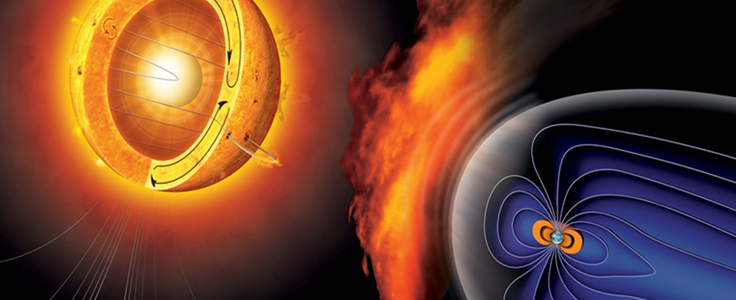Estimated reading time 3 minutes, 58 seconds.
A new 24-7 service has been launched to provide real-time and worldwide space weather updates for commercial and general aviation.

The new service will generate and share space weather advisories using the existing aeronautical fixed network for international aviation using data collected from dedicated space weather centres established by 14 countries:
- the ACFJ consortium of Australia, Canada, France and Japan;
- the PECASUS consortium comprising Austria, Belgium, Cyprus, Finland, Germany, Italy, Netherlands, Poland and the United Kingdom;
- and a third centre operated by the United States.
Two new regional space weather detection centres are also going to be established, no later than November 2022. The first of these will be operated by a consortium of China and the Russian Federation, and the second by South Africa. All of the global and regional centres will be focusing on solar events which can potentially impact air transport-related high frequency (HF) communications, GNSS-based navigation and surveillance, and radiation levels on board civilian aircraft.
“This new capability will permit flight crew and flight operations experts to make use of the most updated information possible on any solar events which could potentially impact aircraft systems or passenger health,” commented ICAO secretary general Dr. Fang Liu.
Aviation safety risks arising from solar events fall primarily into two categories.
On the one hand large solar flares and coronal mass ejections (CMEs) can lead to magnetic storms which present serious risks regarding the reliable operation of satellites, aircraft, power grids, electronic communications, and anything else that relies on electromagnetic waves.
CMEs also stream very energetic solar particles at earth which can significantly increase radiation levels in the atmosphere, at traditional aircraft cruising altitudes, and even at ground level depending on their intensity.
The new space weather information service to support international air navigation commenced operations on Nov. 7, 2019. It provides space weather advisories directly to aircraft operators and flight crew members as part of their standard meteorological information relevant to the entirety of their planned routes, and through updates while they are in flight.
The space weather advisories are also being conveyed to air transport network area control centres, flight information centres, aerodrome meteorological offices, international OPMET (operational meteorological information) databanks, international NOTAM offices, and aeronautical fixed service Internet-based services.
The new space weather service will also rely upon coordination and assistance from national OPMET centres (NOCs), regional OPMET centres (ROCs), regional OPMET data banks (RODBs) and inter-regional OPMET gateways (IROG) which will be responsible to receive and disseminate space weather advisories.
To support states and users in addressing these newly-identified safety risks, ICAO recently issued its new manual on space weather information in support of international air navigation (ICAO Doc 10100), and a manual of aeronautical meteorological practice (ICAO Doc 8896).
ICAO also acknowledged that the new space weather services have been possible thanks to the dedication and hard work of the co-ordination group established for this purpose by the meteorology panel of ICAO. It includes experts from the states tasked to provide the new services, a number of relevant international organizations, and the ICAO secretariat.








